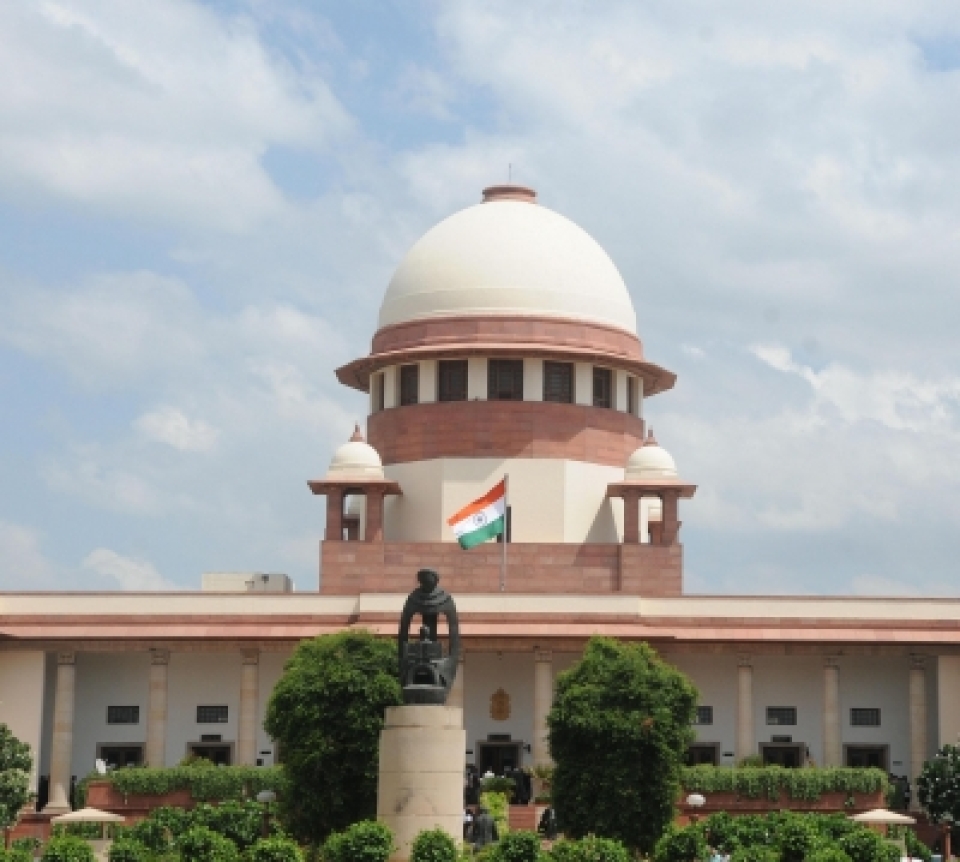New Delhi: The Supreme Court Thursday fixed November 16 for hearing a batch of pleas challenging the Centre and Medical Counselling Committee (MCC) July 29 notice providing 27 per cent reservation for Other Backward Class (OBC) and 10 per cent for EWS category in the National Eligibility cum Entrance Test (NEET) admissions for medical courses.
A bench of Justices DY Chandrachud, Vikram Nath, and BV Nagarathna was told by Solicitor General Tushar Mehta that the government has detailed discussion with senior officials of the department and those who have framed the notification.
“I request the matter to be taken up on reopening of the counselling after Diwali vacation. We also give our assurance with regard to not starting the counselling until the validity of the notification is decided”, Mehta said.
The bench said, “We can take Solicitor General’s assurance on record. Let us keep the matter on November 16”.
At the outset, Mehta said that the union government has filed a counter-affidavit responding to the queries and questions formulated by the court on fixing of Rs 8 lakh limit for determining the Economically Weaker Section (EWS).
Senior advocate Arvind Dattar, appearing for NEET aspirants, said that the Centre in its affidavit has majorly relied on Major General (retd) SR Sinho report which is a little complicated and detailed report.
The apex court was hearing a batch of pleas challenging the Centre and MCC July 29 notice providing 27 per cent reservation for OBC and 10 per cent for EWS category in the NEET admissions for medical courses
In its affidavit, the Centre has justified its decision to set the limit of Rs 8 lakh annual income fixed for determining the EWS category for reservation in NEET admissions for medical courses.
The affidavit filed by the Ministry of Social Justice and Empowerment said that the principle of fixing the amount is rational and in keeping with Articles 14, 15, and 16 of the Constitution.
It had said that the exercise conducted to determine the creamy layer for OBC reservation would be equally applicable for the determination of EWS category since the fundamental premise is that if a person/his family have a substantial economic standing, he/she may not require the benefits of reservation at the cost of others.
“It is reiterated that even the Major General Sinho Commission had suggested that, “extending the existing criteria to identify ‘creamy layer’ among OBCs could well serve as to decide the upper limit or as a criterion for identifying EBC families among General Category too,” the affidavit said.
Major Gen (retd) SR Sinho commission was constituted by the UPA government in 2010 and it recommended welfare measures for the EWS category.
The ministry further said that the criteria for the determination of the EWS category were derived after due deliberation with all the concerned stakeholders.
The Centre said that even before the Office Memorandum dated January 17, 2019, was in existence in the context of identification of Economically Backward Classes (EBC), the Government had set up the Major General Sinho Commission in the year 2005.
It said that this Commission had by its report of July 2010, arrived at various conclusions including the criteria to identify ‘creamy layer’ amongst OBC’s could well serve as a basis to decide the upper limit or as a criterion for identifying EBC families amongst the General Category as well.
“Once such an exercise had already been done, the Government of India has adopted the same financial criteria. It is reiterated that although the Sinho Commission Report is one of the aspects taken into consideration while arriving at a policy decision to provide reservation to EWS of the society, the income criteria now fixed are not on the sole basis of the Major General Sinho Commission Report,” the affidavit stated.
The ministry submitted that the determination of the EWS category in terms of the Office Memorandum dated January 17, 2019, is not overinclusive and need not be interfered with.
“The fixation of eight lakh as income criteria is on the basis of the criteria detailed in the affidavit after taking into consideration the criteria for determining the creamy layer of OBCs. Further even the Major General Sinho Commission had recognised that the very same test can also be applied for EWS. To provide further checks so as to ensure that only the needy get the benefit of Article 15(6) and Article 16(6) reservations, the office memorandum dated January 17, 2019, provides further exclusions,” the affidavit said.
The Centre Monday assured the top court that the counselling process of NEET-PG will not commence till the top court decides the challenge to 27 per cent reservation for OBC and 10 per cent for EWS category in PG all India quota seats (MBBS/BDS and MD/MS/MDS) from the current academic session.
October 21, the top court had asked the Centre whether it would like to revisit the limit of rupees eight lakh annual income, fixed for determining the EWS category for reservation in NEET admissions for medical courses.
The top court had clarified that it is not embarking into the policy domain but is only trying to ascertain whether constitutional principles have adhered or not.
PTI

